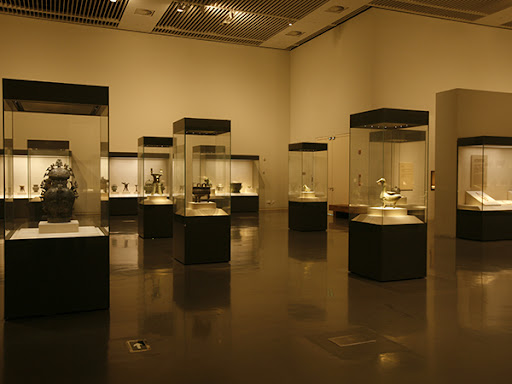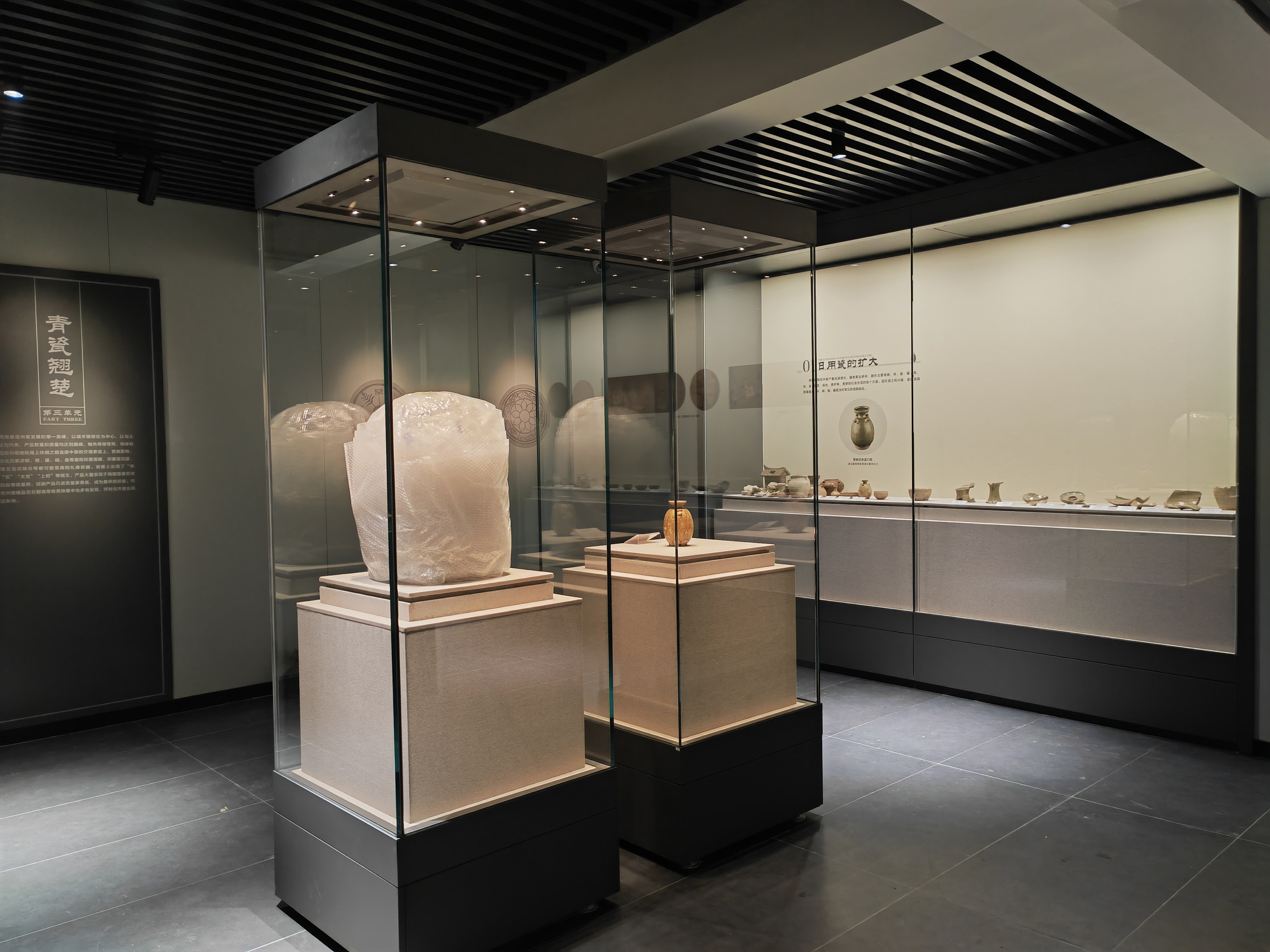Why Up-Lighting Matters in Museum Settings
In modern museum lighting design, up-lighting has become a subtle but powerful tool. Unlike conventional overhead or side lighting, up-lighting draws attention from below, accentuating textures, elevating visual drama, and revealing structural depth in a way that feels immersive but not intrusive.
When used correctly, up-lighting can:
Emphasize architectural features like columns, sculptures, or plinths.
Highlight the contours and shadows of artifacts without casting glare.
Offer spatial layering for mixed-media exhibitions.
Reduce ambient light pollution in sensitive collections (e.g., textiles, paintings).
However, executing up-lighting in museums demands a unique balance—artistry, flexibility, and precision—especially in spaces where silence, minimalism, and mobility are paramount.
Common Challenges with Traditional Fixtures
Despite its aesthetic appeal, traditional lighting fixtures often pose issues when used for up-lighting in museum environments:
Bulky designs that clash with discreet spatial aesthetics.
Noisy cooling fans incompatible with quiet galleries.
Wired installation that creates tripping hazards or disrupts historical architecture.
Low color fidelity, which distorts how viewers perceive ancient artifacts or fine art.
To overcome these challenges, curators and lighting designers are turning to specialized LED fixtures designed for museum-grade performance—particularly portable, battery-powered models with high color rendering.

Recommended Fixture 1 — Battery-Powered 10W Single LED Spotlight
The Battery-Powered 10W Single LED Spotlight exemplifies the modern approach to focused up-lighting. Its compact form factor and high beam precision make it ideal for display cases, freestanding artwork, and mobile exhibits.
Key Features:
True portability: As a fully wireless solution, it eliminates cabling clutter—perfect for heritage-sensitive spaces.
Pinpoint precision: Narrow beam angle allows you to sculpt attention to small details—like carvings, inscriptions, or textures.
Discreet design: Sleek housing blends into surroundings, never visually competing with the exhibit itself.
Battery longevity: Depending on brightness settings, the 10W Battery LED Spotlight can operate for hours without recharging—supporting full-day installations.
Used across multiple galleries and temporary exhibitions, the 10W Battery LED Spotlight excels in spotlighting rare manuscripts, coin displays, or even small natural specimens in glass domes. Its silent operation ensures a distraction-free visitor experience.
_kWHh7i.jpg)
Recommended Fixture 2 — P-26 Mini 60W COB LED Par Light (Warm White)
For exhibits that require broader washes of warm, even light, the P-26 Mini 60W COB LED Par Light – Warm White stands out.
Why It Works in Museums:
COB Technology: The 60W Warm White Par Light uses a Chip-on-Board source, which provides a seamless field of light with minimal hotspots—ideal for illuminating larger objects like sculptures, canvases, or backdrops.
High CRI: This fixture ensures accurate color rendering, making art and materials appear true to life.
Quiet and compact: The 60W Warm White Par Light operates with passive cooling—no fans, no buzzing. Its miniature footprint makes it suitable for floor embedding or tight angles.
Dimming precision: Fine-grain dimming options allow subtle transitions, enhancing exhibit ambiance.
Designers commonly use this fixture to create ambient base layers in gallery halls, illuminate tall statues from below, or cast warm light beneath historical textiles without introducing harsh brightness.
_AV6Tms.jpg)
Combining the Fixtures — A Modular Lighting Strategy
These two fixtures—each with its unique strength—complement each other in multi-zone lighting schemes. Here's how a museum might deploy both:
Use the 10W Battery LED Spotlight to create high-focus points in artifact-rich zones. Each spotlight draws attention without over-lighting surrounding space.
Deploy the 60W Warm White Par Light in broader ambient roles—such as flanking entrances, under sculptures, or behind translucent displays.
This pairing offers a highly modular lighting strategy that adapts to changing exhibition layouts, particularly helpful in museums where exhibits rotate seasonally or monthly.

Real-World Use Scenarios
Art Gallery Case Study: Minimal Framing
A contemporary gallery in Amsterdam used over a dozen 10W Battery LED Spotlights to up-light small porcelain sculptures arranged on a central table. With no visible wires or base clutter, visitors were able to walk 360° around each piece, experiencing form and shadow interplay from every angle.
Cultural Heritage Museum: Mixed Material Lighting
A textile and sculpture collection in Seoul combined both fixtures: the 60W Warm White Par Light was installed to gently wash woven tapestries with even warm tones, while 10W Battery LED Spotlights were placed near delicate bronze artifacts for targeted enhancement.
Traveling Exhibit: Rapid Setup and Teardown
A traveling science exhibition used 20+ 10W Battery LED Spotlights for fossil and mineral displays. Setup time was reduced by over 50%, thanks to wireless flexibility. Combined with several 60W Warm White Par Lights at anchor stations, the entire lighting system packed small and traveled light.
Lighting That Honors the Exhibit
Ultimately, museum lighting should serve one goal: to honor and reveal the exhibit—not overshadow it. Both the 10W Battery LED Spotlight and the 60W Warm White Par Light enable this philosophy in practice.
They offer:
Minimalism in form.
Precision in output.
Silence in operation.
Integrity in color.
As technology continues to evolve, the expectation for lighting to be not just functional, but context-aware and sensitive, will only grow. These fixtures position designers and curators ahead of that curve.
READ MORE:





Blue Sea Lighting is an enterprise with rich experience in the integration of industry and trade in stage lighting and stage special effects related equipment. Its products include moving head lights, par lights, wall washer lights, logo gobo projector lights, power distributor, stage effects such as electronic fireworks machines, snow machines, smoke bubble machines, and related accessories such as light clamps.
Quick Links
For more questions subscribe to our email








